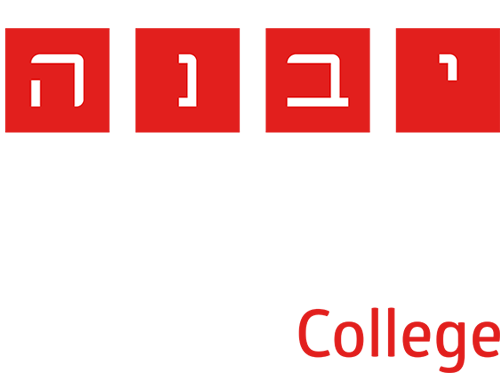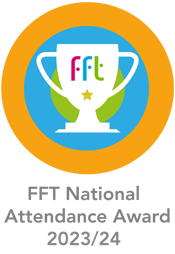Y9 Higher Intent
Over the course of Year 9, our students begin to follow Edexcel GCSE Maths Specification and will study and learn the following:-
| Topic/Study Focus |
Knowledge/Skill focus |
| Rounding |
Significant figures
Estimating
Upper and lower bounds |
| Fractions, decimals & percentages |
Adding and subtracting fractions
Multiplying and dividing fractions
Converting Fractions, decimals and percentages
Recurring decimals
Four rules of decimals |
| Types of number |
HCF & LCM
Standard form
BIDMAS
Indices |
| Expressions and Formulae |
Expand two single brackets
Expand double brackets
Factorising simple expressions
Factorising quadratics
Substituting into formulae
Rearranging formulae |
| Pythagoras’ |
2D Pythagoras’ |
| Perimeter, area and volume |
Perimeter/Converting units
Area
Area of a circle
Circumference of a circle
Volume of prism
Surface area of a prism
Sectors |
| Angles |
Angles in parallel lines
Angles in polygons
Constructing triangles
Congruence
Similar shapes |
| Statistics |
Averages
Scatter graphs
Pie charts |
| Linear & Simultaneous equation |
Equations in context
Simultaneous equations
Inequalities on a number line
Solving inequalities |
| Graphs |
Drawing graphs
Solving simultaneous equations graphically
Finding gradient
Equation of a line
Quadratic graph |
| Sequences |
Linear sequences
Quadratic sequences |
| DST |
Distance, speed & time
Distance Time Graph
Flow graphs |
| Ratios |
Ratios
Exchange rate |
| Probability |
Probability
Sample space
Frequency trees
Venn diagrams |
Y9 Foundation Intent
Over the course of Year 9, our students begin to follow Edexcel GCSE Maths Specification and will study and learn the following:-
| Topic/Study Focus |
Knowledge/Skill focus |
| Rounding and standard form |
Multiply and divide by powers of 10
Standard form
Rounding |
| Fractions |
Equivalent and simplifying fractions
Adding and subtracting fractions
Multiplying and dividing fractions
Fraction of an amount |
| Types of number |
Factors, multiples and primes
HCF & LCM
Square and square roots
Indices
Negative numbers
BIDMAS |
| Expressions and formulae |
Collecting like terms
Expand a single bracket
Expand two single brackets
Substituting into formula
Forming algebraic expressions |
| Area and Perimeter |
Perimeter
Area
Circumference of a circle
Area of a circle |
| Angles & 2D Shapes |
Basic angle rules
Angles in triangles and quadrilaterals
Angles in parallel lines |
| FDP |
Converting fractions, decimals and percentages |
| Whole number & decimal calculations |
Ordering decimals
Adding and subtracting decimals
Multiplying with decimals
Division with decimals
Calculator work |
| Statistics |
Frequency tables
Bar charts
Pie charts
Mean
Median
Range
Stem and leaf diagrams
Scatter diagrams |
| Equations |
Solving one step equations
Solving two step equations
solving equations with unknown on both sides |
| Graphs |
Coordinates
Drawing straight line graphs
Solving simultaneous equations graphically |
| Sequences |
Sequences |
| Probability |
Probability |
Y10 Higher Intent
Over the course of Year 10, our students begin to follow Edexcel GCSE Maths Specification and will study and learn the following:-
| Brackets & quadratic equations |
Expand two single brackets
Expand double brackets
Expand triple brackets
Factorising simple expressions
Factorising quadratics
Difference of two squares
Factorising quadratics where a > 1
Solving quadratics by factorising |
| Fractions & recurring decimals |
Adding and subtracting fractions
Multiplying and dividing fractions
Converting Fractions, decimals and percentages
Recurring decimals |
| Trigonometry |
Pythagoras’
Trigonometry |
| Linear & Simultaneous equations |
Solving linear equations
Simultaneous equations |
| Angles |
Angles in parallel lines
Angles in polygons
Circle theorems |
| Indices |
Indices
Indices with algebra |
| Straight line graphs & Inequalities |
Drawing straight line graphs
Equation of a line
Parallel lines
Perpendicular lines
Interpreting graphs
Midpoint of a line
Linear inequalities
Inequalities and regions |
| HCF, LCM & Standard Form |
HCF & LCM
Standard form |
| Area & Volume |
Area
Arcs & Sectors
Volume of prisms
Surface area of prisms
Cones, spheres and pyramids
Density |
| Non-linear graphs |
Quadratic Graphs
Solving simultaneous equations graphically
Cubic graphs
Reciprocal graphs
Quadratic inequalities |
| Decimals, estimating & rounding |
Adding and subtracting decimals
Multiplying decimals
Dividing decimals
Significant figures
Estimation
Calculator use
Upper and lower bounds
Error intervals
Truncation |
| Statistics |
Pie Charts
Frequency polygon
Scatter graphs
Combined mean
Averages from frequency tables
Histograms
Box plots and cumulative frequency |
| Sequences |
Linear sequences
Quadratic sequences
Geometric and Fibonacci sequences
Recurrence relations
Iterations |
| Transformations |
Reflection
Rotation
Translation
Enlargement
Describing transformations
Invariant points |
| Percentages |
Percentage increase/decrease
Percentage change
Reverse percentages |
| Formulae |
Writing formulae
Rearranging formulae
Substituting into formulae |
Y10 Foundation Intent
Over the course of Year 10, our students begin to follow Edexcel GCSE Maths Specification and will study and learn the following:-
| Brackets |
Collecting like terms
Expand a single bracket
Expand two single brackets
Expand double brackets
Factorising simple expressions |
| Fractions |
Equivalent and simplifying fractions
Adding and subtracting fractions
Multiplying and dividing fractions |
| Pythagoras’ |
Pythagoras’ |
| Equations |
1 step equations
2 step equations
Unknown on both sides |
| Angles |
Basic angle rules
Angles in triangles and quadrilaterals
Angles in parallel lines
Angles in polygons |
| Indices |
Indices
Indices with algebra |
| Graphs |
Drawing straight line graphs
Equation of a line
Parallel lines
Interpreting graphs
Midpoint of a line |
| Rounding, estimating and decimals |
Adding and subtracting decimals
Multiplying with decimals
Division with decimals
Rounding
Significant figures
Estimating
Upper and lower bounds
Calculator work |
| HCF & LCM |
Factors, multiples and primes
HCF & LCM |
| Area & Perimeter |
Area of triangles, rectangles and parallelograms
Area of trapeziums
Area of compound shapes
Area of a circle
Circumference of a circle
Area of sector
Length of arc |
| Statistics |
Pie Charts
Scatter graphs
Mean
Mode
Median
Range
Averages from frequency tables
Stem and leaf diagrams |
| Sequences |
Linear Sequences
Fibonacci
Geometric |
| FDP |
Fraction, decimal & percentage conversion
Percentage of an amount
Percentage increase/decrease
Reverse percentage
Percentage change |
| Ratio & Proportion |
Equivalent and simplifying ratios
Ratio problems
Scale drawings
Bearings
Best buys
Exchange rates
Proportion |
| Transformations |
Reflection
Rotation
Translation
Enlargement
Describing transformations |
Y11 Higher Intent
Over the course of Year 11, our students begin to follow Edexcel GCSE Maths Specification and will study and learn the following:-
| Surds |
Simplifying surds
Expanding brackets with surds
Rationalising surds |
| Quadratics |
Completing the square
Quadratic formula
Quadratic simultaneous equations
Equation of a circle |
| Pythagoras’, Trigonometry & Constructions |
Pythagoras’ 3D
Trigonometry 3D
Bearings
Scale drawings
Constructions
Congruency
Similar shapes
Loci
Nets, plans and elevations
Volume of a frustum |
| Probability |
probability
Tree diagrams
Venn diagrams
Combinations
Capture/recapture |
| Ratio & Proportion |
Ratio
Direct and inverse proportion
Algebraic direct and inverse proportion |
| Algebraic fractions & Functions |
Simplifying algebraic fractions
Multiplying and dividing algebraic fractions
Adding and subtracting algebraic fractions
Solving algebraic fractions
Functions |
| Further Graphs & Further Trigonometry |
Trigonometric graphs
Exact trig values
Sine and cosine rule
Area of non right angled triangles
Exponential graphs
Transformation of graphs
Gradient of a curve
Area under a curve
Distance time graphs
Velocity time graphs |
| Vectors |
Vectors |
| Proofs |
Algebraic proof
Ggeometric proof |
Y11 Foundation Intent
Over the course of Year 11, our students begin to follow Edexcel GCSE Maths Specification and will study and learn the following:-
| Quadratics |
Factorising quadratics
Difference of two squares
Solving quadratics |
| Simultaneous Equations |
Simultaneous equations
Solving simultaneous equations graphically |
| Trigonometry |
Trigonometry
Exact Trig Values |
| 3D Shapes and Constructions |
Bearings
Scale drawings
Construction
Loci
Nets
Plans and elevations
Nets |
| Volume & Surface area |
Volume of a prism
Surface area of a prism |
| Standard Form |
Adding and subtracting in standard form
Multiplying and dividing in standard form |
| Compound Measures |
Converting metric units
Distance, speed, time
Distance time graphs
Density
Pressure
Real life graphs |
| Similar Shapes |
Similar shapes
Congruency |
| Fractions |
Multiplying and dividing algebraic fractions
Adding and subtracting algebraic fractions
Solving algebraic fractions
Functions |
| Non-linear graphs |
Quadratic graphs
Cubic graphs
Reciprocal graphs
Conversion graphs
Solving simultaneous equations graphically |
| Inequalities |
Inequalities on a number line
Solving inequalities |
| Vectors |
Describing and drawing vectors
Colum vectors |




